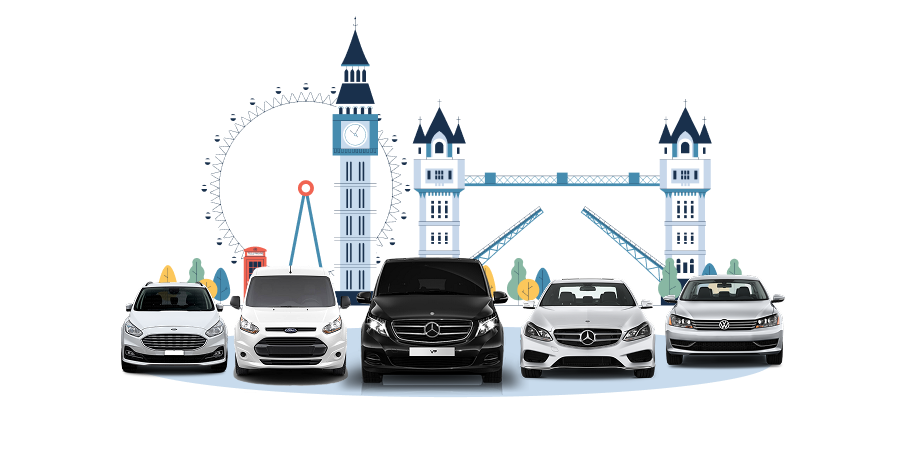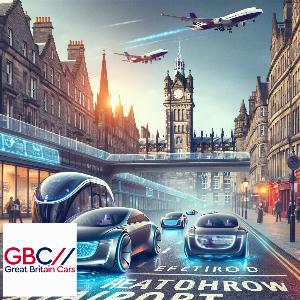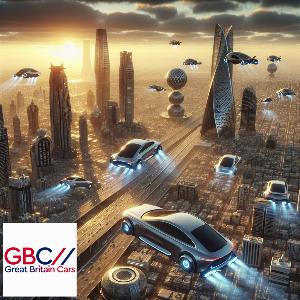Air Minicabs: Todays Innovation, Tomorrows Norm
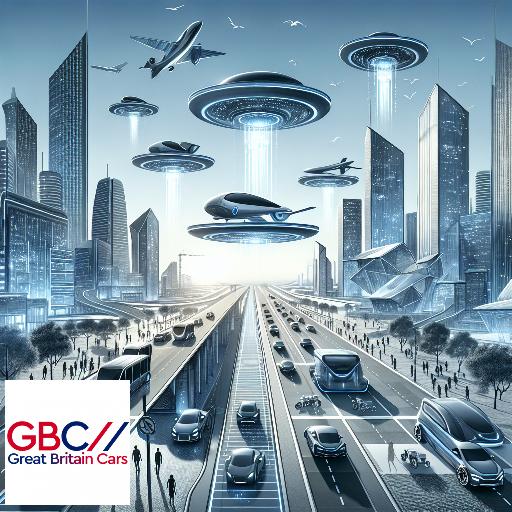
Air transfer Technology
Air transfer Technology is revolutionizing the way we perceive urban mobility. Today's innovation, it promises to become tomorrow's norm. This technology, primarily driven by electric vertical take-off and landing (eVTOL) aircraft, aims to provide a quick, efficient, and eco-friendly alternative to traditional ground transportation. The concept of air transfers is not new, but recent advancements in technology have made it a viable option for the near future. Companies like Uber and Airbus are investing heavily in this sector, developing prototypes that could soon be whizzing above our cities. The benefits are manifold: reduced traffic congestion, faster travel times, and lower carbon emissions. However, challenges such as air traffic control, safety, and public acceptance still need to be addressed. As we stand on the brink of a new era in transportation, it's clear that Air transfer Technology is not just a fleeting trend, but a glimpse into a future where the sky is truly the limit.
Air transfer Companies
Air transfer companies are revolutionizing the transportation industry, offering a new mode of travel that promises to be faster, more efficient, and more environmentally friendly. These companies are developing small, electric aircraft that can take off and land vertically, much like a helicopter, but with the speed and range of a traditional airplane. This technology, known as VTOL (Vertical Take-Off and Landing), is the cornerstone of the air transfer industry. Companies like Uber Elevate, Lilium, and Volocopter are leading the charge, investing heavily in the development and testing of these innovative aircraft. They envision a future where air transfers are as common as cars, providing a solution to the growing problem of urban congestion. While there are still many regulatory and logistical hurdles to overcome, the progress made by these companies is promising. Air transfers may seem like a concept straight out of a science fiction movie, but they could soon become a reality, transforming the way we travel.
Air transfer Infrastructure
Air transfer Infrastructure is a revolutionary concept that is rapidly transforming the transportation landscape. Today's innovation, it is poised to become tomorrow's norm. Air transfers, also known as flying cars or eVTOLs (electric Vertical Takeoff and Landing vehicles), are set to redefine urban mobility, offering a faster, cleaner, and more efficient mode of transport. However, the success of this futuristic technology hinges on the development of a robust Air transfer Infrastructure. This infrastructure includes vertiports for takeoff and landing, charging stations, air traffic control systems, and regulatory frameworks. Vertiports, akin to helipads, will be strategically located across cities, enabling easy access for passengers. Charging stations will ensure the electric-powered air transfers are always ready for flight. Advanced air traffic control systems will be crucial for managing the increased airspace traffic, ensuring safety and efficiency. Lastly, comprehensive regulatory frameworks will govern the operation of air transfers, addressing concerns around safety, noise, and privacy. As we stand on the brink of a new era in transportation, the development of Air transfer Infrastructure is not just an innovation, but a necessity for the future.
Air transfer Regulations
Air transfers, a revolutionary innovation in the transportation sector, are poised to become a common mode of transport in the near future. However, the advent of this technology brings with it a need for comprehensive regulations to ensure safety and efficiency. Regulatory bodies worldwide are grappling with the challenge of creating a framework that can accommodate this new form of transport. Key considerations include air traffic management, safety standards, noise pollution, and privacy concerns. The Federal Aviation Administration (FAA) in the U.S. and the European Union Aviation Safety Agency (EASA) are leading the charge in developing these regulations. They are working closely with air transfer manufacturers to ensure that the technology is safe and reliable. As air transfers move from concept to reality, these regulations will play a crucial role in shaping the future of urban mobility. The goal is to create a regulatory environment that fosters innovation while ensuring public safety and trust in this new mode of transportation.
Air transfer Market
The Air transfer market is rapidly evolving, with today's innovation set to become tomorrow's norm. This burgeoning industry is driven by advancements in drone technology and electric propulsion systems, promising a future where air transfers are a common mode of urban transportation. The market is projected to grow exponentially, with key players like Uber, Airbus, and Boeing investing heavily in research and development. The potential benefits are immense, including reduced traffic congestion, faster travel times, and lower carbon emissions. However, there are significant challenges to overcome, such as regulatory hurdles, safety concerns, and public acceptance. Despite these obstacles, the air transfer market is poised for takeoff. As technology continues to advance and regulations adapt to accommodate this new form of transport, it's only a matter of time before air transfers become a regular sight in our skies.
Air transfer Services
Air transfer Services are revolutionizing the way we travel, promising to make congested roads a thing of the past. This innovative mode of transportation, once a concept of science fiction, is rapidly becoming a reality. Air transfers, small aircraft designed for short-range flights, are being developed by numerous companies worldwide. They aim to provide a quick, efficient, and eco-friendly alternative to traditional ground transportation. Air transfer Services are not just about speed and convenience; they also offer a solution to the growing problem of urban congestion. By utilizing the airspace, travel times can be significantly reduced, making it an attractive option for commuters. Moreover, with advancements in electric propulsion technology, air transfers have the potential to be a more sustainable mode of transport. While still in the developmental stage, the future of Air transfer Services looks promising. As technology advances and regulatory hurdles are overcome, air transfers could soon become the norm for urban transportation, transforming the way we travel.
Air transfer Environmental Impact
Air transfers, once a concept of science fiction, are now becoming a reality. As we move towards a future where air transfers become the norm, it's crucial to consider their environmental impact. Unlike traditional ground transfers, air transfers have the potential to significantly reduce traffic congestion, thereby decreasing carbon emissions from idling vehicles. They also promise faster travel times, which could further reduce energy consumption. However, the environmental benefits of air transfers largely depend on their power source. If powered by renewable energy, air transfers could offer a sustainable alternative to ground transportation. Conversely, if they rely on fossil fuels, they could contribute to air pollution and climate change. Therefore, as air transfer technology continues to evolve, it's essential that sustainability remains a key focus. The potential of air transfers to revolutionize transportation is exciting, but it must be balanced with the need to protect our planet.
Air transfer Safety
Air transfer Safety is a paramount concern as we usher in a new era of urban mobility with Air transfers. Today's innovation could be tomorrow's norm, but only if safety standards are met and consistently upheld. Air transfers, or eVTOLs (electric Vertical Take-Off and Landing vehicles), are designed with multiple redundancies to ensure safe operation. These include multiple rotors and motors, fail-safe software, and emergency parachute systems. Furthermore, they will be subject to rigorous testing and certification processes by aviation authorities worldwide. The integration of Air transfers into our transportation system also necessitates the development of a comprehensive air traffic management system to prevent mid-air collisions. As we stand on the brink of this exciting new frontier in transportation, it is crucial that safety remains at the forefront of all discussions and developments. Only then can we confidently embrace Air transfers as a safe, efficient, and sustainable mode of transport for the future.
Air transfer Design
Air transfer Design is revolutionizing the future of urban mobility. Today's innovation is set to become tomorrow's norm, with the advent of Air transfers. These futuristic vehicles, designed to fly in urban environments, are poised to transform the way we travel. The design of Air transfers is focused on safety, efficiency, and sustainability. They are typically electric, reducing carbon emissions and noise pollution. The compact design allows for vertical take-off and landing, making them ideal for crowded cities. The interior is designed for comfort and convenience, with features like panoramic windows for stunning views. The technology behind Air transfers includes advanced navigation systems for precise routing and autonomous capabilities for safe, pilot-less flights. As the technology matures and regulatory hurdles are overcome, Air transfers are expected to become a common sight in our cities. The future of transportation is here, and it's soaring above us.
Air transfer Adoption
Air transfer adoption is rapidly gaining momentum, promising to revolutionize the way we travel. Today's innovation could become tomorrow's norm as these autonomous, electric-powered vehicles offer a sustainable and efficient alternative to traditional transportation methods. Air transfers, also known as eVTOLs (Electric Vertical Takeoff and Landing), are designed to alleviate traffic congestion, reduce travel time, and contribute to a greener environment. Major cities worldwide are already testing these futuristic vehicles, with companies like Uber and Airbus leading the charge. The potential benefits of Air transfers are immense, from reducing carbon emissions to saving valuable time in our increasingly busy lives. However, there are still hurdles to overcome, including regulatory approval, infrastructure development, and public acceptance. Despite these challenges, the adoption of Air transfers seems inevitable as technology continues to advance and the demand for efficient, eco-friendly transportation grows. In the not-too-distant future, we may look up to see a sky filled with Air transfers, making today's innovation tomorrow's norm.
Our Latest Blog Posts

Air Minicabs: A Look into the Future of Travel
Blog about Air transfers: A Look into the Future of Travel
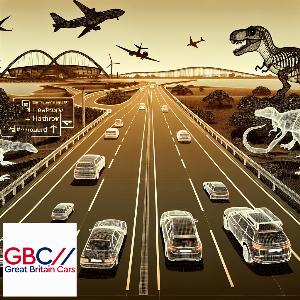
Heathrow to the Jurassic Coast: A Prehistoric Adventure
Blog about Heathrow to the Jurassic Coast: A Prehistoric Adventure
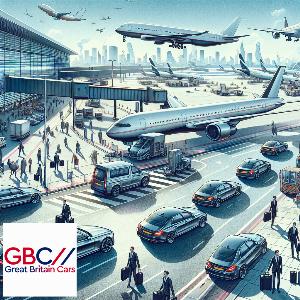
London Airports: Potential Hubs for Air Minicabs
Blog about London Airports: Potential Hubs for Air transfers
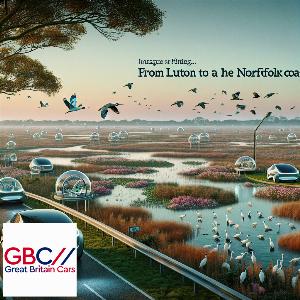
Luton to the Norfolk Coast: A Birdwatchers Paradise
Blog about Luton to the Norfolk Coast: A Birdwatchers Paradise
Blogs Pages
Navigating the Holidays: London Airport Minicab Tips
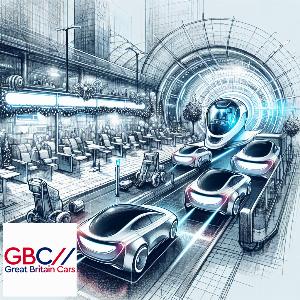
Blog about Navigating the Holidays: London Airport Transfer Tips...
Londons Iconic Landmarks: A Minicab Tour Guide
Blog about Londons Iconic Landmarks: A transfer Tour Guide...
Our Clients Testimonials

Best servive
The vehicle is by and large around remained mindful of and cleaned . It was especially fair.
Perez





Fair characteristics
It has fair characteristics, kind , polite ,conversational and incredibly strong driver.
Robert





Dependable
The driver was so dependable and arrived at in legitimate time which was so great.
Grace





Fundamental booking
Fundamental booking and the driver was on time , mindful and solid.
Jackson





Amenability
They have very neighborliness .They are genuinely agreeable in nature.
Jonson





Fair attributes
It has fair attributes, kind , pleasant ,conversational and unbelievably solid driver.
Hill





Fair credits
It has fair credits, kind , wonderful ,conversational and unimaginably strong driver.
Baker





Solid and kind
The driver was entirely dependable, supportive and kind .His way of behaving was simply delightful.
Hannah





Politeness
They have very politeness .They are truly friendly in nature.
Nelson





Fair values
It has fair values, kind , polite ,conversational and very helpful driver and pleasant too.
Emma





Stunning ability
Astoundingly fit and trustful drivers they have . We will use this later on.
Jones





Best rates
They are also economically best as well. They have very reason able rates.
Mark





Surprising assistance
It is astoundingly incredible assistance and it's likewise dependable and on time generally. I'm truly astonished by it.
Clark





Punctual
The driver was so punctual and reached in proper time which was so good.
Elizabeth





Great service
It is very great service and it's also reliable and on time always. I am really impressed by it.
Aana





Dependable service
The driver was so dependable and appeared at in credible time which was so awesome.
Smith





Remarkable help
It is astoundingly fantastic help and it's also reliable and on time for the most part. I'm genuinely amazed by it.
Anna





Chief drive administration
They are best in UK. They are giving chief drive administration.
Kevin





Trustworthy
The driver was so trustworthy and showed up at in valid time which was so great.
Lee





Solid and kind
The driver was no question, areas of strength for solid kind .His way to deal with acting was simply awesome.
Wright




